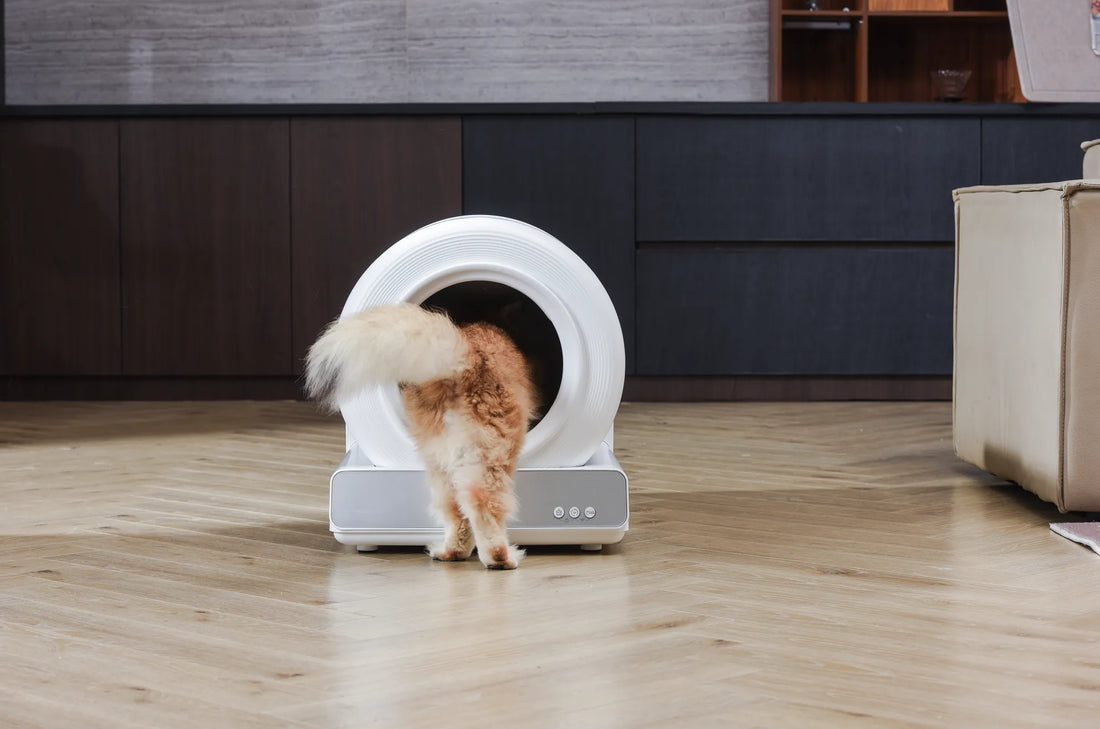If your cat is purposely peeing outside the litter box, it can be frustrating and confusing. This behavior is not uncommon, but it often signals an underlying issue that needs attention. Understanding the reasons behind this behavior and implementing the right solutions can help restore harmony in your home.
Understanding the Behavior
Cats are naturally clean animals, and they usually prefer to use their litter box. However, when they start peeing outside of it, it can be a sign of stress, health problems, or dissatisfaction with their environment. It's essential to observe your cat's behavior closely to determine the root cause.
Common Causes of Cats Peeing Outside the Litter Box
Medical Issues
One of the first things to consider when your cat is peeing outside the litter box is their health. Urinary tract infections, kidney disease, diabetes, and other medical conditions can cause discomfort and lead to inappropriate elimination. If you notice any changes in your cat's urination habits, it's crucial to consult a veterinarian for a thorough check-up.
Stress and Anxiety
Cats are sensitive creatures, and changes in their environment can cause stress and anxiety. Moving to a new home, introducing a new pet, or even rearranging furniture can make your cat feel uneasy. Stress can manifest in various ways, including peeing outside the litter box. Identifying and addressing the source of stress can help alleviate this behavior.
Litter Box Issues
Sometimes, the problem lies with the litter box itself. Cats can be picky about the type of litter, the size of the box, and its location. If the litter box is too small, too dirty, or placed in a noisy or high-traffic area, your cat may avoid using it. Ensuring that the litter box meets your cat's preferences can make a significant difference.
Territorial Marking
Unneutered or unspayed cats may engage in territorial marking by peeing outside the litter box. This behavior is more common in multi-cat households where cats compete for territory. Spaying or neutering your cat can help reduce territorial marking and promote more appropriate elimination habits.
Effective Solutions to Address the Problem
Consult a Veterinarian
If you suspect that your cat's behavior is due to a medical issue, the first step is to consult a veterinarian. A thorough examination can help identify any underlying health problems and determine the appropriate treatment. Addressing medical issues promptly can prevent further complications and improve your cat's overall well-being.
Create a Stress-Free Environment
Reducing stress and anxiety in your cat's environment can help curb inappropriate elimination. Provide a safe and quiet space where your cat can retreat and feel secure. If there have been recent changes in your home, give your cat time to adjust and offer plenty of reassurance. Using pheromone diffusers or calming supplements can also help reduce stress.
Optimize the Litter Box Setup
Ensuring that the litter box meets your cat's needs is crucial. Choose a litter box that is large enough for your cat to move around comfortably. Experiment with different types of litter to find one that your cat prefers. Keep the litter box clean by scooping it daily and changing the litter regularly. Place the litter box in a quiet, low-traffic area where your cat feels safe.
Address Territorial Issues
If territorial marking is the issue, consider spaying or neutering your cat. This can help reduce the urge to mark territory and promote more appropriate elimination habits. In multi-cat households, provide multiple litter boxes in different locations to reduce competition and give each cat their own space.
Positive Reinforcement
Positive reinforcement can be an effective way to encourage your cat to use the litter box. Reward your cat with treats, praise, or playtime when they use the litter box correctly. Avoid punishing your cat for peeing outside the litter box, as this can increase stress and worsen the behavior.
Preventing Future Issues
Preventing your cat from peeing outside the litter box involves ongoing attention to their needs and environment. Regularly monitor your cat's health and behavior, and make adjustments as needed. Maintain a clean and comfortable litter box setup, and provide a stress-free environment. By addressing potential issues proactively, you can help ensure that your cat continues to use the litter box appropriately.
Dealing with a cat that is purposely peeing outside the litter box can be challenging, but with patience and the right approach, you can resolve the issue. Understanding the reasons behind this behavior and implementing effective solutions can help restore peace in your home and ensure your cat's well-being. Remember, every cat is unique, and it may take some time to find the right combination of strategies that work for your feline friend.

![[🎃Halloween Sale]UAHPET Stainless Steel Self-Cleaning Cat Litter Box](http://www.uahpet.com/cdn/shop/files/1-cat-litter-box.jpg?v=1759128420&width=1600)












